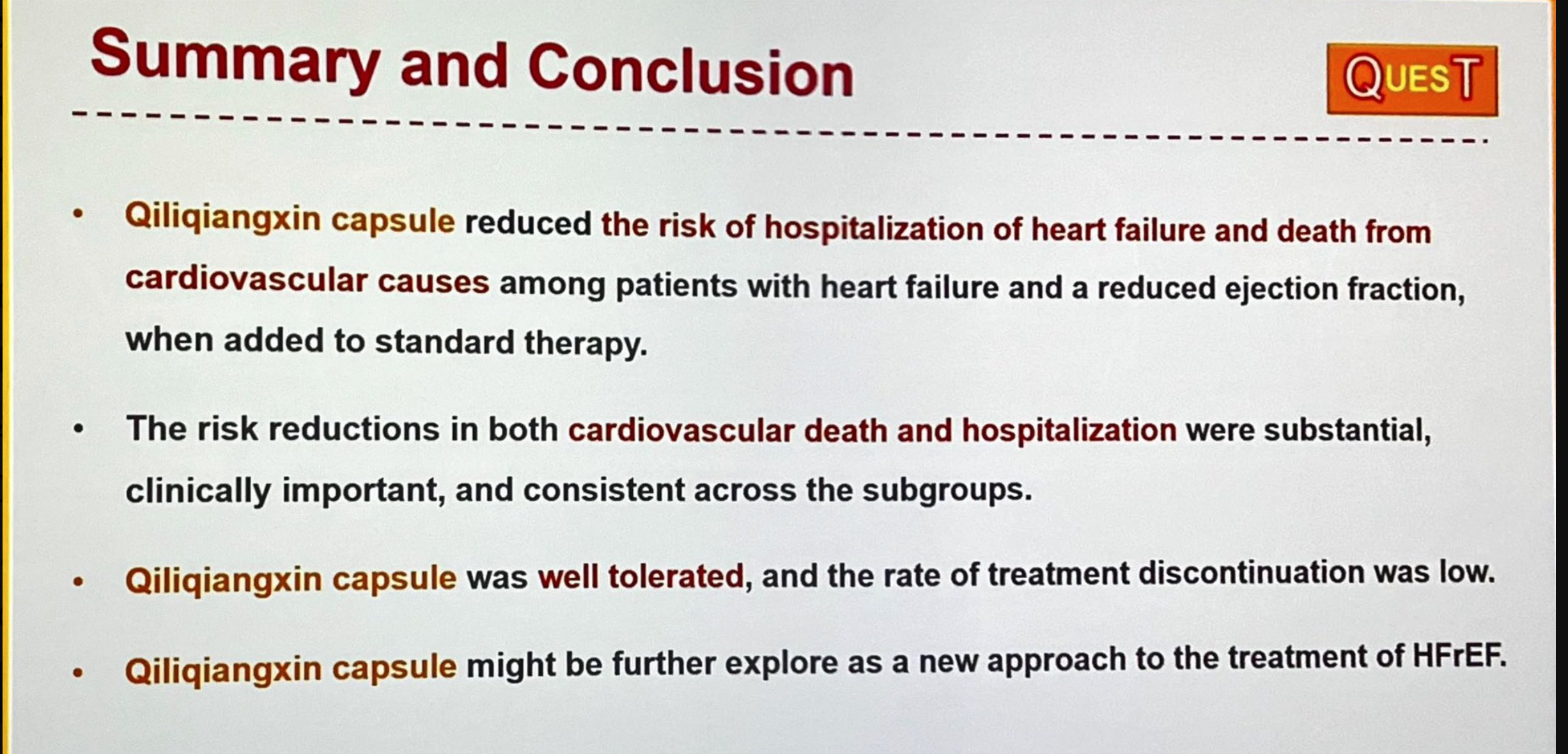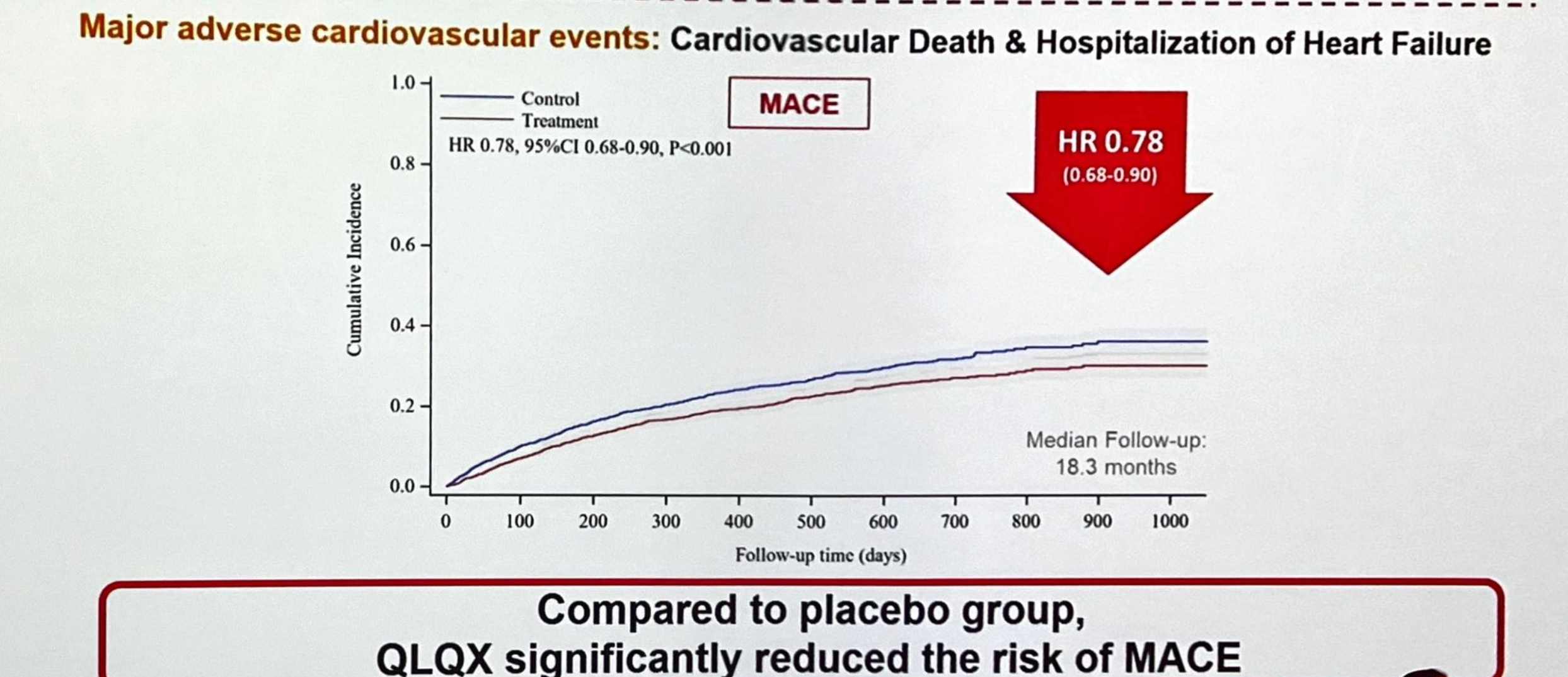Late-breaking research presented at ESC Congress 2023 reveals that qiliqiangxin, a traditional Chinese medicine, effectively reduces hospitalisations due to heart failure and cardiovascular-related deaths among patients suffering from heart failure and reduced ejection fraction (HFrEF).
Derived from a blend of 11 distinct herbs, qiliqiangxin reduced N-terminal pro–B-type natriuretic peptide (NT-proBNP) and improved heart failure symptoms when incorporated into existing HFrEF treatments. Preclinical investigations indicate qiliqiangxin's potential in mitigating myocardial fibrosis and cardiac remodelling.
The QUEST trial evaluated qiliqiangxin's clinical efficacy and safety concerning major outcomes of heart failure in HFrEF patients. The trial was conducted across 133 hospitals in mainland China and Hong Kong. The trial included 3,110 HFrEF patients with a left ventricular ejection fraction of 40% or below and NT-proBNP levels of 450 pg/ml or higher with a stable baseline treatment regimen for a minimum of two weeks before enrolment. The mean left ventricular ejection fraction at baseline was 32%, and the median NT-proBNP was 1730.80 pg/ml.
The primary endpoint of the study was a composite of rehospitalisation due to worsening heart failure or cardiovascular death. Study patients received qiliqiangxin (1555 patients -administered as four capsules thrice daily) or placebo (1555 patients) alongside standard medications for chronic heart failure.
Over a median follow-up period of 18.3 months, the primary endpoint was observed in 25.02% patients in the qiliqiangxin group, compared to 30.03% in the placebo group. This effect was related to lower risks of rehospitalisation due to deteriorating heart failure and cardiovascular-related death in the qiliqiangxin group. These positive outcomes held consistent across prespecified subgroups.
Regarding secondary endpoints, the qiliqiangxin group exhibited a greater reduction in serum NT-proBNP between baseline and the three-month follow-up compared to the placebo group.

Safety analysis displayed no significant variance in all-cause mortality, with 14.21% in the qiliqiangxin group and 16.85% patients in the placebo group experiencing such events. Qiliqiangxin capsules were well-tolerated, with no differences between the two groups in adverse effects related to the gastrointestinal system, worsening renal function, and increased liver enzyme levels.

Lead investigator Professor Xinli Li from the First Affiliated Hospital of Nanjing Medical University in Nanjing, China, concluded that this trial of a traditional Chinese medicine in chronic heart failure attests to the significant clinical advantages of qiliqiangxin for HFrEF patients, thus endorsing its role as an adjunct therapy in heart failure treatment.
Source: ESC Congress 2023
Slide and Image Credit: ESC Congress 2023



























